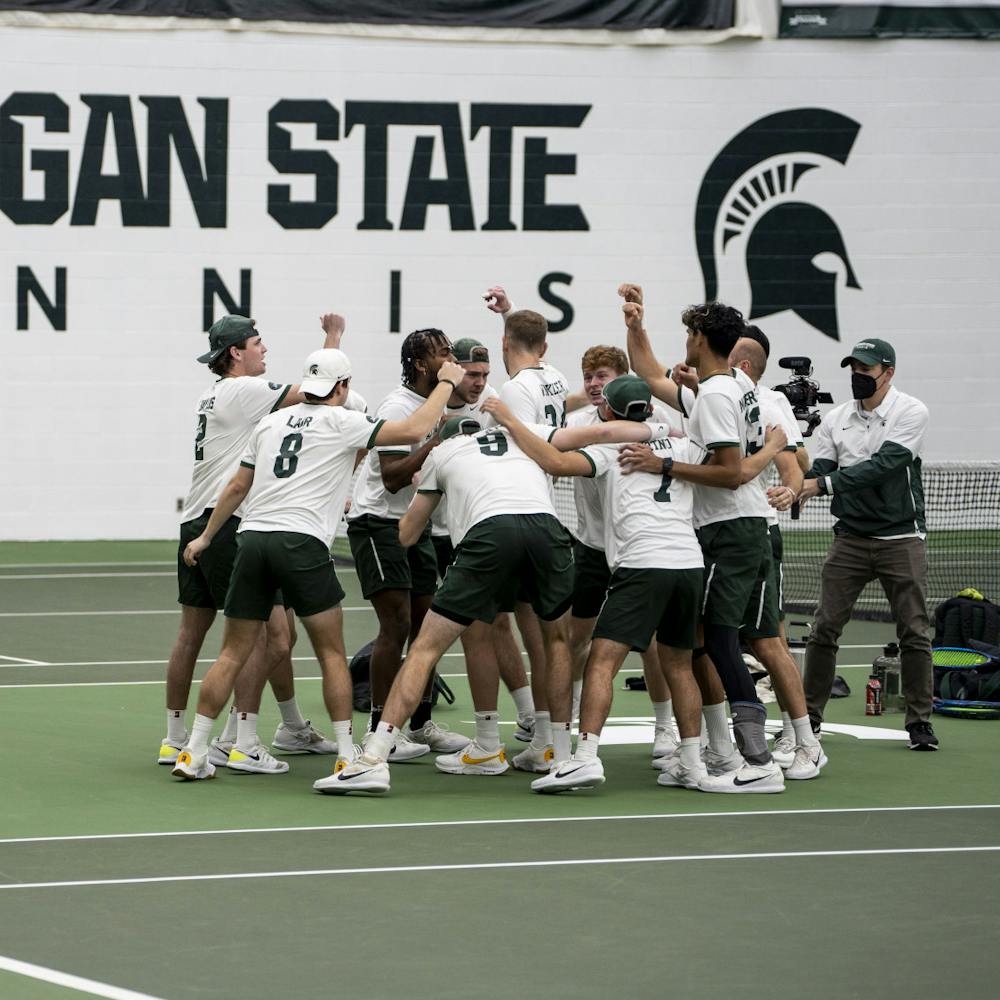When most search their home country’s name on YouTube, they might expect to find videos of the latest World Cup highlights, not propaganda footage showing militants forcing civilians and government soldiers onto the dirt before executing them.
But for Iraqi student Ameer Janabi, whose home country has been ravaged by extremist militants since early June, continual bloodshed is the latest news from home.
“Everyday when I go to bed I go to Youtube, and I write ‘Iraq’ and make the history of search into the last day. And everyday I find about 20 videos of killing people — it’s terrifying,” Janabi, an electrical engineering graduate student, said.
Although Iraq is home to millions, the violence has even found a way to impact those abroad. Janabi said a fellow Iraqi student at MSU stumbled upon a YouTube video of militants executing two of his friends.
“There’s no words to describe this,” Janabi said. “Watching your friend die in a videotape on YouTube — it’s terrible, it’s terrible.”
As the Islamic State in Iraq and Syria, or ISIS, extremist militant group continues capturing cities and instilling fear across Iraq, many Iraqi students are struggling to cope with the uncertain fate of their country Janabi said, who left home in the spring to study at MSU.
According to preliminary data from Iraq Body Count, a website that records violent civilian fatalities in Iraq, 1,862 civilians have died in June so far, which is 800 more casualties than in May and the highest death toll since 2007.
Although the conflict continually plagues the students with grim news, it has strengthened their bonds as a community.
“We’re really close to each other, we’re really close friends, we share almost everything,” Janabi said. “I think that’s because all of us are having a hard time here. All of us have family in Iraq.”
Several days after ISIS seized Mosul, the second-largest city in Iraq, the Iraqi government, shut down social media sites on June 13, which included Skype, Twitter and Facebook, severing vital communication links to home for many Iraqis abroad, the Washington Post reported.
The conflict erupted in early June, when ISIS and aligned forces began sweeping across northern Iraq, capturing cities, seizing military assets and executing civilians, primarily Shia Muslims, the New York Times reported.
Their tactics, which include “live-tweeted amputations” and “public crucifixions,” are so brutal that even al-Qaeda, once affiliated with the group, has denounced them and disavowed any ties, according to the Huffington Post.
ISIS’s offensive aims at crafting a Sunni Islamic state from vast portions of Iraq and Syria, and they’ve already established influence and control over large chunks of northern and western Iraq, according to the New York Times.
The current Shia-dominated, democratically-elected Iraqi government has been accused of sectarian policies that slight Iraq’s Sunni religious minority, producing Sunni discontent that has “helped fuel the success of ISIS’s military campaign,” the Wall Street Journal reported.
But denominational differences fall short of explaining the level of violence associated with the conflict, English professor and Islam expert Salah Hassan said.
“Militias and governments use the religious difference to stir up hatred,” he said. “As the sectarian (religious identities) aspect of the conflict develops, it starts to look as though religion is the cause, but it is secondary to the primary causes. My point is that neither religious differences nor ethnic differences can explain the recent history of conflict in Iraq, which is more about holding political power, claiming territory, and controlling oil resources.”
Hassan said the Iraqi people have a long-forced familiarity with violence and insecurity because of extremists and geopolitical interference.
More than anything, Janabi said, the Iraqi people strive for a home where “children can go to good schools and enjoy their childhood,” where “old people stop worrying about their children” and where middle-age people can get married, study, go out with friends and lead a “normal life.”
“With all of this, explosions and everything, they maintain, they keep their children going to school and they go to work in spite of all of this,” Janabi said. “The Iraqi people, they keep doing this to maintain their normal life. They have a big desire to live in peace.”






